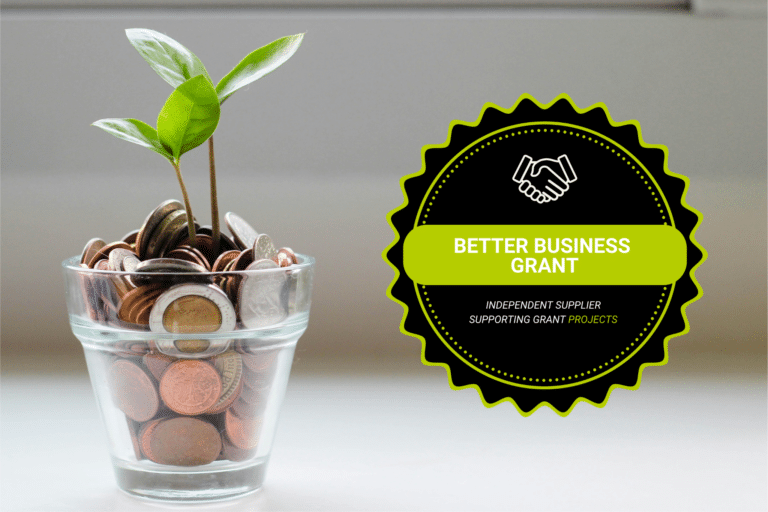Diversity is like a garden in full bloom, where each flower enhances the beauty of the whole. Just as a garden thrives on the richness of varied flora, our community flourishes when we embrace a multitude of voices and experiences, cultivating a more dynamic and resilient community.
This principle is reshaping the modern workplace as organisations recognise the vital importance of diversity, equity, and inclusion (DEI). DEI is no longer optional; it is essential for creating spaces that mirror the values of a changing world. Beyond policies and compliance, DEI offers a transformative framework to foster environments where everyone feels respected, valued, and empowered to succeed, just as each flower contributes to the harmony of a thriving garden.
In this article, we explore the essence of DEI, why it matters, and how you can turn intention into impactful action. From understanding its foundation principles to exploring practical implementation strategies, this guide will help you reimagine the role of diversity, equity, and inclusion in your organisation. By embracing these concepts, you can create environments where everyone can thrive – driving innovation, building resilience, and shaping a workplace that reflects the values of an evolving world.
Differences between diversity, equity, and inclusion
While diversity, equity, and inclusion are powerful tools individually, their true impact is evident when combined.
Organisations may refer to related concepts in their culture and DEI documents, but the meanings of these words can vary. Therefore, it’s crucial to grasp the specific meanings of the foundational terms:
- Diversity refers to the wide range of identities, including race, ethnicity, gender, age, religion, disability, and sexual orientation.
- Equity refers to the fair treatment, access, and opportunity of all people while acknowledging that certain populations are historically underserved. Not to be confused with equality, which focuses on treating everyone the same. Equity, conversely, is about ensuring your end result is equal by considering a person’s unique circumstances and adjusting treatment accordingly.
- Inclusion refers to creating a welcoming, respectful, and supportive environment where anyone can fully participate.
Once we’ve mastered the basics, we can start to look at related concepts, such as belonging, which is the sense of security and support derived from feeling accepted and included within a specific group or community.
The importance of diversity, equity, and inclusion in the workplace
As the world grapples with ongoing humanitarian crises, racial injustice, and gender inequality, people want to invest their money and energy in ethical and socially conscious businesses, and their custom too.
The growing demand for organisations to prioritise DEI reflects a fundamental shift in societal and business expectations. It’s no longer enough for DEI to be a symbolic gesture or a compliance requirement – it must be an integral part of how organisations operate, communicate, and lead. This transition requires moving from a focus solely on external perceptions to embedding DEI in everyday practices. By doing so, organisations can meet the heightened scrutiny of how they approach DEI while creating meaningful, long-term change that benefits both individuals and the business. Here are a few ways that prioritising DEI can have a positive impact:
- Improved innovation: Diverse teams generate more creative solutions and innovative ideas by bringing unique perspectives to the table.
- Better financial performance: Companies with higher diversity are more likely to outperform their peers in profitability and value creation.
- Enhanced decision-making: Inclusive environments foster cognitive diversity, leading to more balanced and effective business strategies.
- Stronger employee engagement: People in inclusive workplaces are more likely to feel valued and motivated, which reduces turnover and increases productivity.
- Expanded market reach: A diverse workforce helps organisations understand and connect with a broader customer base.
This deeper commitment to DEI lays the foundation for meaningful employee experiences, emphasising the human impact of these initiatives. While the tangible business benefits of DEI are valuable for gaining leadership buy-in, they should not be the primary motivator for embracing it.
Instead, organisations must prioritise people, weaving DEI into every stage of the employee lifecycle, from inclusive onboarding to building diverse leadership pipelines and fostering cultures of belonging.
Best practices for diversity, equity, and inclusion success
To create a successful DEI strategy, businesses need to move beyond one-off initiatives and start integrating DEI into every part of their practices, from recruitment to leadership development and beyond.
With so many potential paths to improve DEI, knowing where to focus your efforts first can be overwhelming. The good news is that several straightforward and cost-effective strategies can start you on the right foot.
Data-driven approaches
Collecting and analysing demographic and inclusion data allows you to identify gaps and measure the effectiveness of your DEI initiatives. This information helps track progress, ensure accountability, and adjust strategies. However, ensure you are collecting this information in line with data protection legislation.
Leading by example
Leaders should model inclusive behaviours, such as recognising and celebrating diversity, creating mentoring opportunities for diverse employees that promote equitable career growth, and implementing training for everyone on DEI principles. Another crucial aspect of DEI success is leaders holding themselves accountable for progress.
Employee involvement
DEI should be a shared responsibility across all levels. Involving people in DEI programmes and creating safe spaces for feedback ensure broader engagement and a more inclusive culture.
Bias mitigation
Regular unconscious bias training and standardised evaluation processes help reduce bias in recruitment, promotions, and performance reviews, ensuring more equitable outcomes across your organisation.
Continuous learning and improvement
DEI is an ongoing process that requires feedback and adaptability. It isn’t solved after one initiative finishes. Continuously evaluating strategies and adjusting to new challenges ensures that your DEI efforts remain relevant and impactful.
Diversity, equity, and inclusion are essential for fostering workplaces where individuals thrive and organisations succeed. By embedding DEI into everyday practices and committing to continuous progress, businesses can drive meaningful change that benefits their people, culture, and bottom line. Prioritising fairness, respect, and belonging ensures not only organisational growth but also a positive impact on the broader community.
Need some help?
If you’re ready to embrace DEI, our team will work with you to create a strong, sustainable, and measurable DEI strategy.




